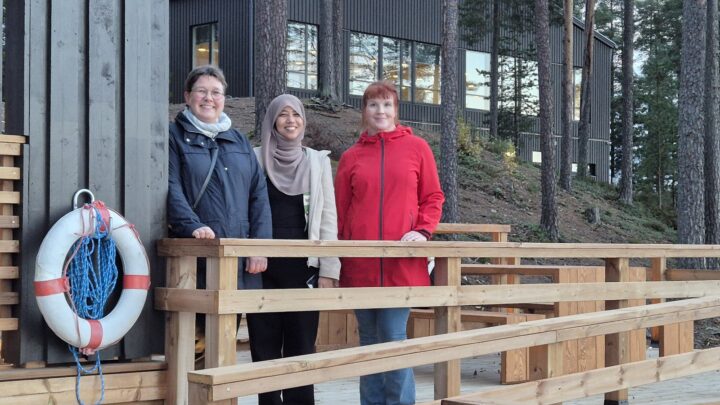Organizational Resilience is Needed in the Constant Turbulence of Life Sciences Manufacturing
University of Turku’s Industrial Engineering and Management unit had Nia Kurniati Bachtiar from the University of Glasgow visiting LifeFactFuture project’s work package 2 on manufacturing excellence. Nia’s research concerns innovation management especially from the perspective of organizational resilience, which deals with organizations’ capabilities to recuperate in times of change and crisis.
What is organizational resilience?
Any firms face various changes and crises stemming from the environmental conditions. Most recently, pandemics, wars, trade conflicts and demands, exceptional weather and environmental conditions, and many other surrounding events are calling for firms’ acute and skillful responses. Organizational resilience deals with the firms’ capability to survive in such events, regain their competitive edge, and find novel mechanisms to succeed in the new conditions. Resilience may imply the necessity to innovate products and services, improve operations and supply chains, and also engage in more dramatic business arrangements such as divestitures, mergers, acquisitions, and spin-offs.
Why should manufacturing firms be concerned with organizational resilience?
Also life sciences manufacturing firms are sensitive to any crises in the surrounding world. Access to raw materials, supply chains, resources, and customer markets may be disturbed by surprising events. Therefore, these firms must build such capabilities that help them find alternative solutions, in case a crisis or multiple crises take place.
When crises occur more frequently, manufacturing firms must prepare not only to recover from disruptions but also to transform themselves in response to the repeated external disturbances. In this context, organizational resilience emerges as a strategic capability, enabling firms to adapt to turbulent events (bounce back), learn from crises (bounce forward), and ultimately transform their strategies and operations to achieve long-term sustainable growth.
By prioritizing and strengthening organizational resilience, manufacturing firms can do more than simply survive unexpected disruptions: they can optimize their resources and enhance both organizational and operational capabilities. This proactive approach allows firms to learn and evolve during crises, positioning them to become more change-ready and to sustain growth despite the uncertainties that arise from ongoing and overlapping crises.
International research exchange promoting mutual learning
During her exchange in Finland, Nia participated in University of Turku Innovation and Project Management research group’s various activities, such as the doctoral seminar, paper development workshop, and LifeFactFuture project’s writing workshop. She introduced her research to other doctoral researchers, sparking our interest into the centrality of organizational resilience in manufacturing, and also offered support to other doctoral researchers by reading and commenting their papers and helping with data coding and tool use for qualitative data analysis. Additionally, various informal discussions took place among doctoral researchers.
Nia also continued writing her own research paper, thereby benefiting from the inspiring conditions facilitated through the LifeFactFuture project. Collaboration and interaction will continue through forthcoming international events!
Miia Martinsuo, Professor
miia.martinsuo(a)utu.fi
University of Turku, Industrial Engineering and Management
Nia Kurniati Bachtiar, Doctoral Researcher
NiaKurniati.Bachtiar(a)glasgow.ac.uk
University of Glasgow, Adam Smith Business School
– – –
Photo: Miia Martinsuo, Nia Kurniati Bachtiar and Maarit Päällysaho during the LFF Research Workshop in Eerikkilä Sport & Outdoor Resort.

